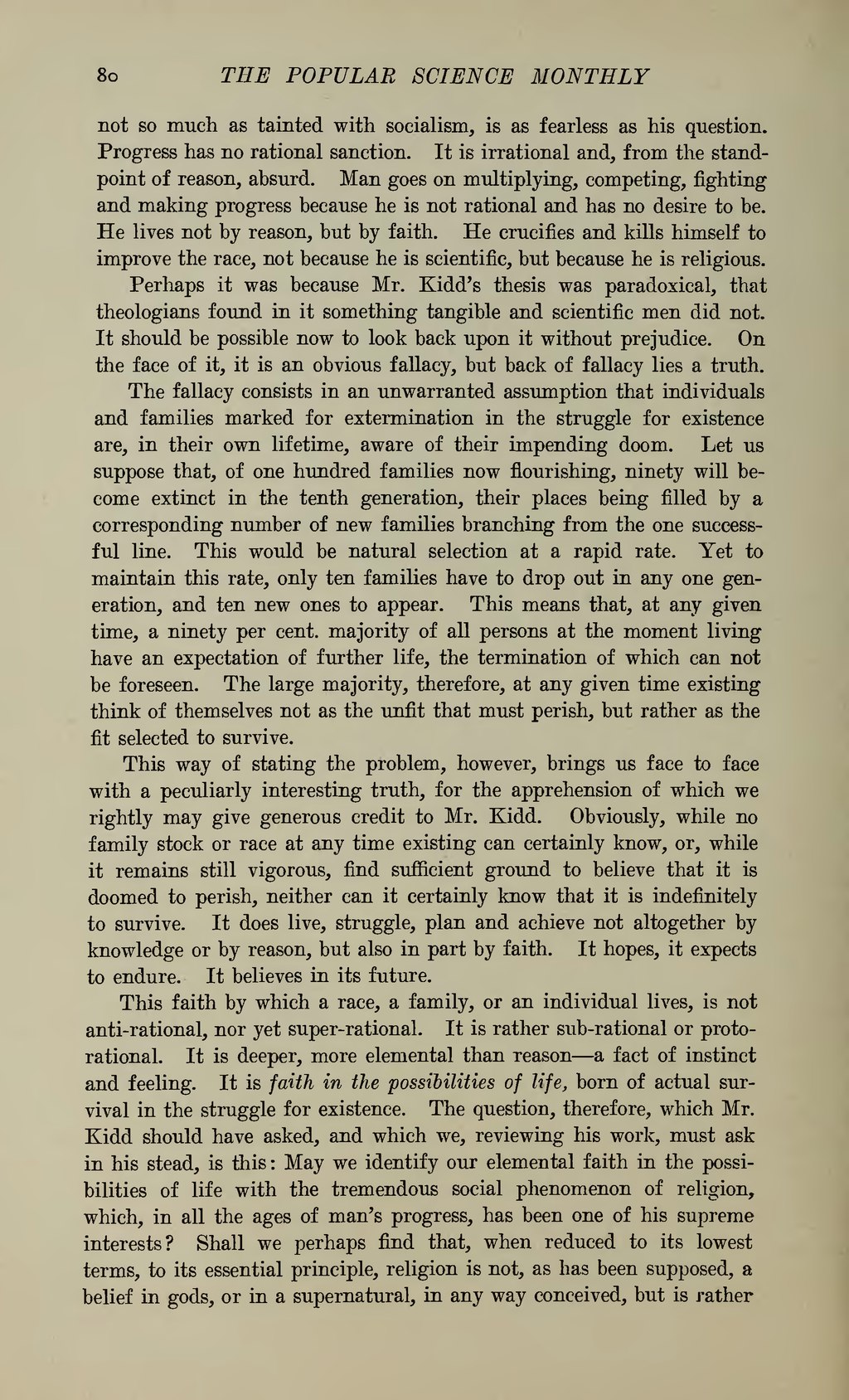not so much as tainted with socialism, is as fearless as his question. Progress has no rational sanction. It is irrational and, from the standpoint of reason, absurd. Man goes on multiplying, competing, fighting and making progress because he is not rational and has no desire to be. He lives not by reason, but by faith. He crucifies and kills himself to improve the race, not because he is scientific, but because he is religious.
Perhaps it was because Mr. Kidd's thesis was paradoxical, that theologians found in it something tangible and scientific men did not. It should be possible now to look back upon it without prejudice. On the face of it, it is an obvious fallacy, but back of fallacy lies a truth.
The fallacy consists in an unwarranted assumption that individuals and families marked for extermination in the struggle for existence are, in their own lifetime, aware of their impending doom. Let us suppose that, of one hundred families now flourishing, ninety will become extinct in the tenth generation, their places being filled by a corresponding number of new families branching from the one successful line. This would be natural selection at a rapid rate. Yet to maintain this rate, only ten families have to drop out in any one generation, and ten new ones to appear. This means that, at any given time, a ninety per cent, majority of all persons at the moment living have an expectation of further life, the termination of which can not be foreseen. The large majority, therefore, at any given time existing think of themselves not as the unfit that must perish, but rather as the fit selected to survive.
This way of stating the problem, however, brings us face to face with a peculiarly interesting truth, for the apprehension of which we rightly may give generous credit to Mr. Kidd. Obviously, while no family stock or race at any time existing can certainly know, or, while it remains still vigorous, find sufficient ground to believe that it is doomed to perish, neither can it certainly know that it is indefinitely to survive. It does live, struggle, plan and achieve not altogether by knowledge or by reason, but also in part by faith. It hopes, it expects to endure. It believes in its future.
This faith by which a race, a family, or an individual lives, is not anti-rational, nor yet super-rational. It is rather sub-rational or protorational. It is deeper, more elemental than reason—a fact of instinct and feeling. It is faith in the possibilities of life, born of actual survival in the struggle for existence. The question, therefore, which Mr. Kidd should have asked, and which we, reviewing his work, must ask in his stead, is this: May we identify our elemental faith in the possibilities of life with the tremendous social phenomenon of religion, which, in all the ages of man's progress, has been one of his supreme interests? Shall we perhaps find that, when reduced to its lowest terms, to its essential principle, religion is not, as has been supposed, a belief in gods, or in a supernatural, in any way conceived, but is rather

